If you have a pet bird, you may have noticed that it sometimes nibbles or licks your hair, skin, or clothes. This behavior is called preening, a bird’s way of grooming itself and its flock members.
Preening is essential for birds to keep their feathers in good condition and show affection, trust, and bonding. This article will explore four reasons why your bird preens you and what it means for your relationship.
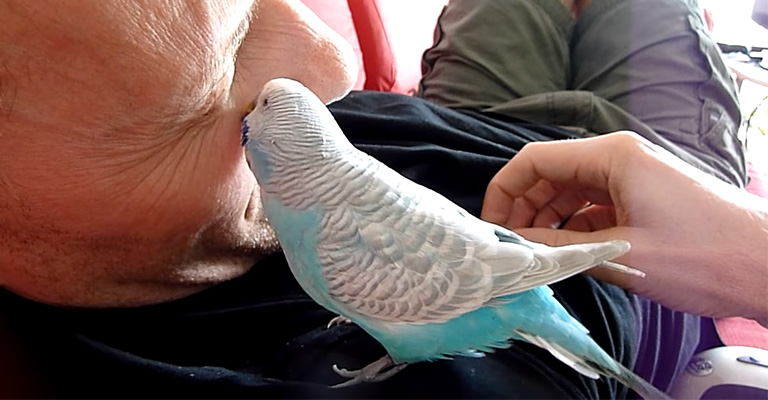
What is preening, and why do birds do it?
Preening is a bird’s way of grooming its feathers to keep them in the best condition. While preening, birds remove dust, dirt, and parasites from their feathers and align each feather in the optimum position relative to adjacent feathers and body shape. Most birds will preen several times a day to keep themselves healthy.
Preening also serves a social function for birds. Birds living in flocks often preen each other to strengthen their bonds and show affection.
Preening helps birds communicate their moods, intentions, and emotions to their flock mates. Preening also helps birds regulate their body temperature and waterproof their feathers.
Why does my bird preen me?
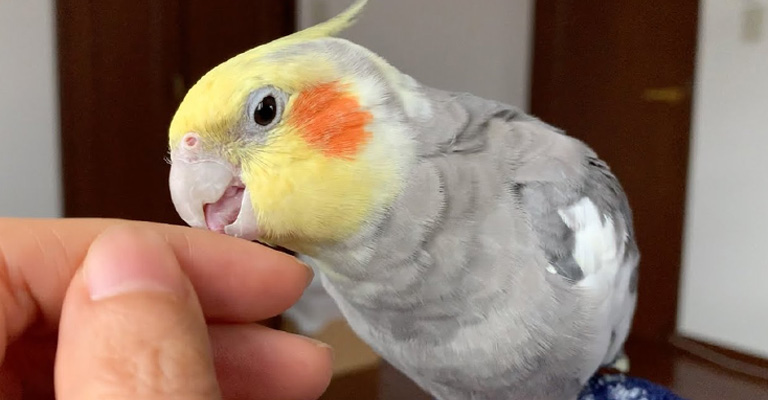
If your bird preens you, it considers you part of its flock and cares about you. Here are four possible reasons why your bird tends you:
To Neaten You Up
A bird will preen itself to maintain its feathers; preening keeps them straight and clean. The preening process keeps feathers straight and clean and creates a sheen on the bird’s feathers, making them more shiny and beautiful.
When a bird preens you, it is trying to get the same result. Birds will groom your hair to get it to look neater, keep your hygiene up, and maintain the quality of your hair. Your bird may also preen your skin or clothes to remove any dirt or debris that it finds.
Your bird may think you need some help with your grooming or need to do a better job by yourself. Your bird may also want to make you look more attractive to potential mates or rivals.
To Show Affection
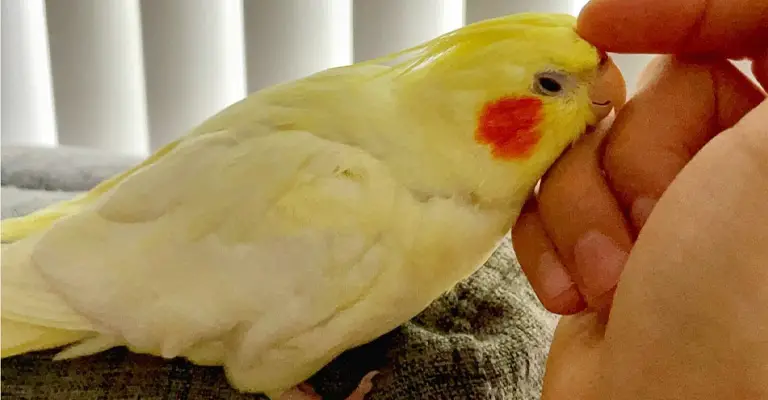
Another reason why birds preen you is to show affection. Preening is a loving gesture communicating that the bird cares about your hygiene and well-being. A bird wouldn’t be happy if it had to go around with parasites, dust, and dirt on its feathers; if it cared about you, it would not like you to do this, either.
Preening you is a bird’s way of showing affection towards you, and that enjoys your company. Your bird may also clean you to thank you for caring for it, feeding it, or playing with it.
Preening is also a way of expressing intimacy and trust between birds. By preening you, your bird is exposing its vulnerable parts, such as its eyes or neck, to you. This means that your bird trusts you enough to let you touch these sensitive areas.
As A Sign Of Trust
If your bird chooses to preen you, this communicates that the bird is very comfortable with you and feels safe around you. The act of preening takes focus and effort. The bird has to lower its guard to concentrate and put effort into preening you.
A bird will only lower its guard if it trusts you. Your bird depends on you not harming it or taking advantage of its vulnerability while it preens you. Your bird also tasks that you will not reject its gesture or push it away.
Trust is essential for building a strong bond with your bird. By trusting you enough to preen you, your bird values your relationship and wants to keep it healthy.
As A Way To Bond With You
Birds can get very attached to their human companions, especially if they are hand-raised or have no other birds around them. The more you care for these animals, the stronger their relationships with you will be.
Once a bird realizes that you provide attention and care to them, it will repay this attention and care by offering companionship and affection in the form of preening to you.
Preening is one of the ways that birds bond with each other in the wild. By preening each other, birds reinforce their social ties and establish hierarchy within the flock.
By preening you, your bird is trying to bond with you and make you feel like part of its flock. Your bird also shows that it respects and accepts you as its leader.
What Are Some Warnings About Preening?
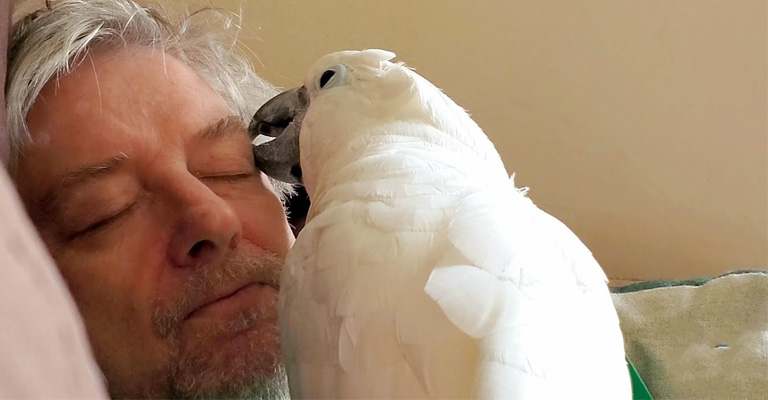
Preening is a natural behavior in birds where they use their beaks to clean and groom their feathers. While preening is a healthy and necessary activity for birds, there are some warnings and precautions to remember.
Here are some points with detailed explanations about warnings related to preening:
Over Preening
Some birds may engage in excessive preening, where they spend excessive time grooming themselves. While occasional preening is usual, over-preening can be a warning sign of underlying health or behavioral issues.
It can lead to feather damage, skin irritation, and bald patches. If you notice your bird excessively preening, it’s essential to monitor their behavior and consult with an avian veterinarian if necessary.
Feather Plucking
Feather plucking, also known as feather-destructive behavior, is a severe warning sign associated with preening. It occurs when birds excessively and aggressively pull out their feathers, leading to bald spots and skin damage.
Feather plucking can have various underlying causes, including stress, boredom, health issues, or improper socialization. If you observe feather plucking in your bird, it’s crucial to seek veterinary advice to identify and address the root cause.
Feather Abnormalities
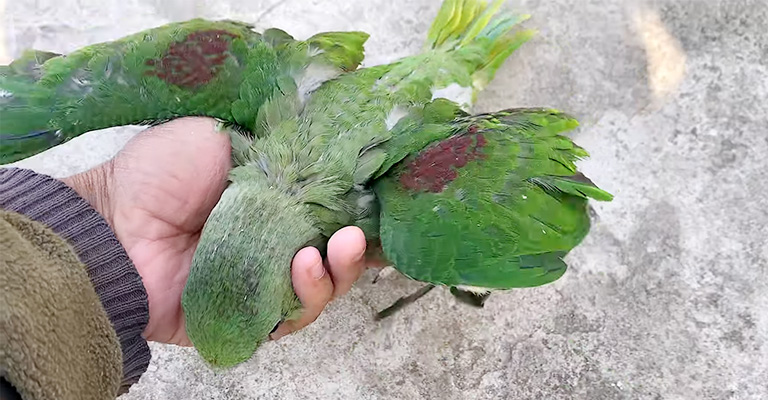
During preening, birds typically smooth and align their feathers. If you notice any abnormalities, such as broken feathers, bent shafts, or uneven feather growth, it may indicate a problem.
Abnormal feather conditions can result from improper preening, nutritional deficiencies, hormonal imbalances, or parasites. Regularly inspect your bird’s feathers during preening sessions to detect any irregularities and address them promptly.
Self-inflicted Injuries
While preening, birds may accidentally injure themselves, significantly if their feathers are damaged or they have an underlying health condition.
When the bird uses its beak to groom, sharp or broken feather shafts can cause cuts or abrasions. It’s essential to carefully monitor your bird during preening sessions and promptly address any wounds or injuries to prevent infection.
Toxic Substances
Birds are susceptible to certain chemicals and toxins. It’s essential to ensure that the environment in which your bird preens is free from harmful substances such as cleaning agents, aerosols, insecticides, and certain household plants.
Ingesting or inhaling toxic substances during preening can have serious health consequences. Always use bird-safe and non-toxic products in the areas where your bird resides.
Lack of Access to Bathing
Preening is closely linked to bathing in birds. Bathing helps keep their feathers clean, hydrated, and in good condition.
If your bird does not have regular access to bathing opportunities, such as a shallow dish of water or misting sessions, it may impact its ability to preen effectively. Ensure your bird can access bathing options to support its preening behavior and overall feather health.
Stress and Aggressive Behavior
In some cases, birds may exhibit aggressive behavior towards themselves or their cage mates during preening. During grooming sessions, this can manifest as aggressive feather plucking or attacking other birds.
Aggression during preening can be a warning sign of stress, territoriality, or social conflicts. Provide a calm and enriched environment for your bird, and consider consulting with an avian behaviorist to address and manage the underlying causes.
Establishing a routine of regular observation and check-ups for your bird’s preening behavior is essential. An avian veterinarian should evaluate any unusual or concerning signs, as they can help identify and address any underlying health or behavioral issues affecting your bird’s preening habits.
What About Birds Preening Themselves?
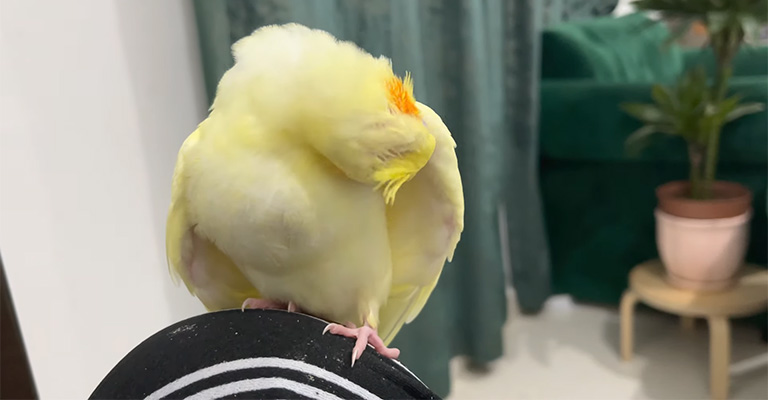
Birds preening themselves is a natural and essential behavior for their health and well-being. Here are some points with detailed explanations about birds preening themselves:
Feathers Maintenance
Birds have a complex system of feathers that require regular maintenance. Preening helps birds keep their feathers in optimal condition.
During preening, birds use their beaks to realign and smooth their feathers, ensuring they are correctly positioned and able to provide insulation, flight capabilities, and protection from the elements.
Feather Cleaning
Preening helps birds remove dirt, dust, debris, and parasites from their feathers. Birds have specialized feathers called “powder down” that produce a powdery substance that aids in cleaning.
During preening, they distribute this powder through their feathers, helping to absorb excess oil and dirt. By meticulously cleaning their feathers, birds maintain clean and hygienic plumage.
Oil Distribution
Birds have an oil gland called the preen gland or uropygial gland near the base of their tail. This gland produces a waxy substance called preen oil.
During preening, birds collect the preen oil on their beaks and transfer it to their feathers. This process helps waterproof the feathers, preventing them from becoming waterlogged and improving their aerodynamic properties during flight.
Feather Health and Durability
Regular preening helps keep the feathers strong, flexible, and durable. Birds meticulously remove damaged or broken feathers during preening sessions, allowing healthy feathers to grow.
By maintaining the integrity of their feathers, birds can effectively fly, regulate body temperature, and display their vibrant plumage.
Stress Reduction
Preening is a self-soothing behavior for birds. Engaging in preening helps them relax, relieve stress, and maintain a sense of comfort and security. It provides birds with a natural and instinctual way to release tension and promote emotional well-being.
Bonding and Social Interaction
Preening is a social behavior among birds. In social species, birds may engage in mutual preening and grooming of each other’s feathers.
This behavior strengthens social bonds, establishes hierarchies within a flock, and promotes overall group cohesion.
Feather Care Education
Birds learn preening techniques from their parents or flock mates. Juvenile birds observe and imitate the preening behaviors of adults, gradually learning how to maintain their feathers effectively.
Preening is essential to a bird’s education, ensuring they develop proper grooming habits for their lifelong feather health.
Sensory Stimulation
Preening stimulates sensory receptors at the feathers’ base, providing birds with valuable sensory feedback. These receptors help birds maintain awareness of their feathers’ positioning, movement, and condition. Preening allows birds to fine-tune their coordination and proprioception.
Physical Comfort
Similar to how humans find comfort in grooming routines such as brushing or combing hair, birds experience physical comfort while preening. Grooming and manipulating their feathers stimulates nerve endings and provides a satisfying sensation for the birds.
Behavioral Indicator
Observing a bird preening itself can indicate its overall health and contentment. A bird that actively preens, with smooth and well-groomed feathers, is often a sign of a physically and mentally healthy individual.
Conversely, a lack of preening or disheveled feathers may indicate underlying health issues or stress that require attention and veterinary care.
By understanding the significance of birds preening themselves, bird owners can appreciate this natural behavior and ensure their feathered companions have a conducive environment for proper feather maintenance and overall well-being.
FAQ
In most cases, letting your bird preen you is perfectly okay. However, there are a few things to keep in mind. First, make sure that your bird is healthy and free of parasites. Second, be aware that some birds may be more aggressive than others when preening. If your bird is biting or scratching you, it is best to discourage this behavior.
You can do a few things if you do not want your bird to preen you. First, try to discourage the behavior by gently moving your bird away from you when it starts to groom. Second, redirect your bird’s attention to something else, such as a toy or a treat. If these methods do not work, you may need to consult a veterinarian or avian behaviorist for help.
If your bird’s excessive preening could indicate a medical problem. Excessive preening can be a symptom of stress, anxiety, or even a nutritional deficiency. If your bird is preening excessively, taking it to the veterinarian for a checkup is essential.
You can do a few things to help your bird’s preening habits. First, ensure your bird has access to a clean, safe place to bathe. Second, you can provide your bird with various toys and perches to help keep it entertained and occupied. Third, you can offer your bird a healthy diet with plenty of fruits, vegetables, and whole grains.
Conclusion
Preening is a natural behavior for birds and serves several important purposes. If your bird is preening you, there are a few possible reasons.
In most cases, letting your bird clean you is perfectly okay. However, there are a few things to remember, such as your bird’s health and behavior.
Suppose you have any concerns about your bird’s preening habits. In that case, it is best to consult a veterinarian or avian behaviorist.